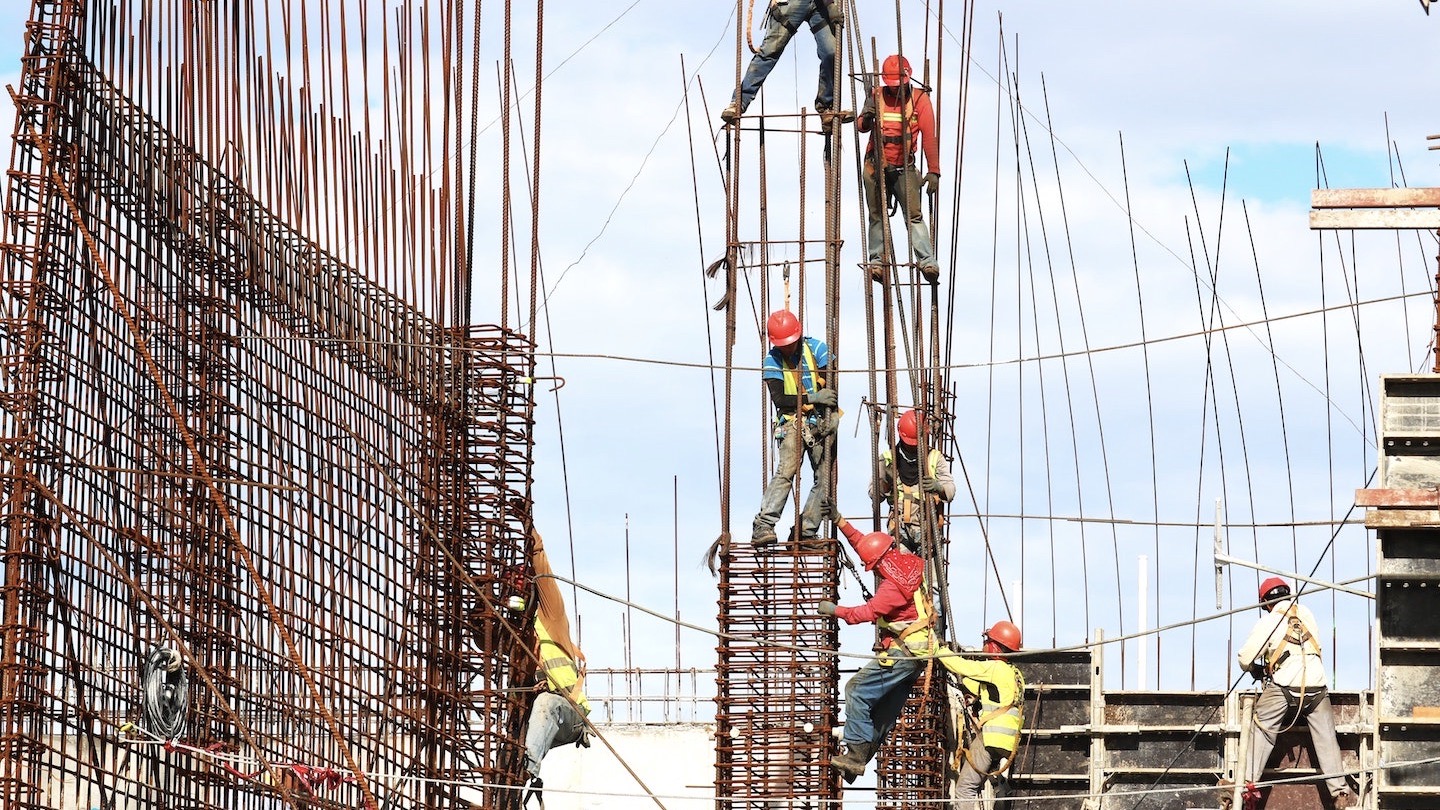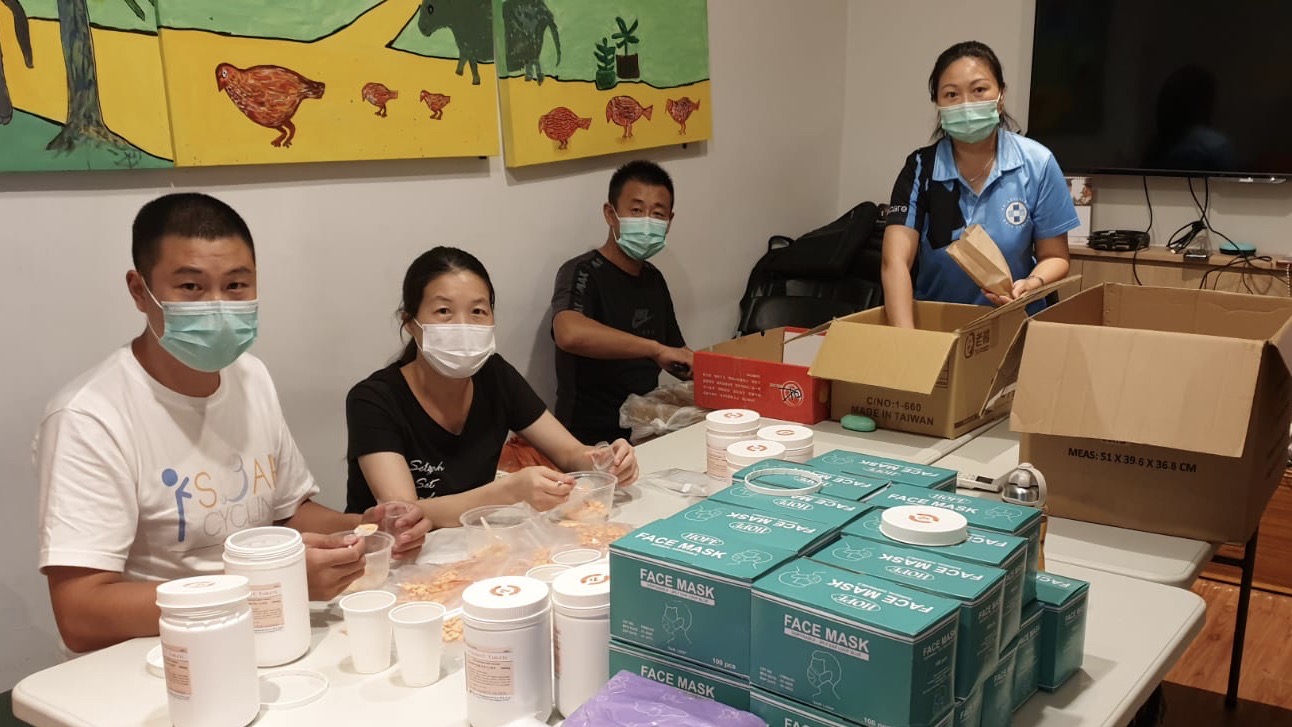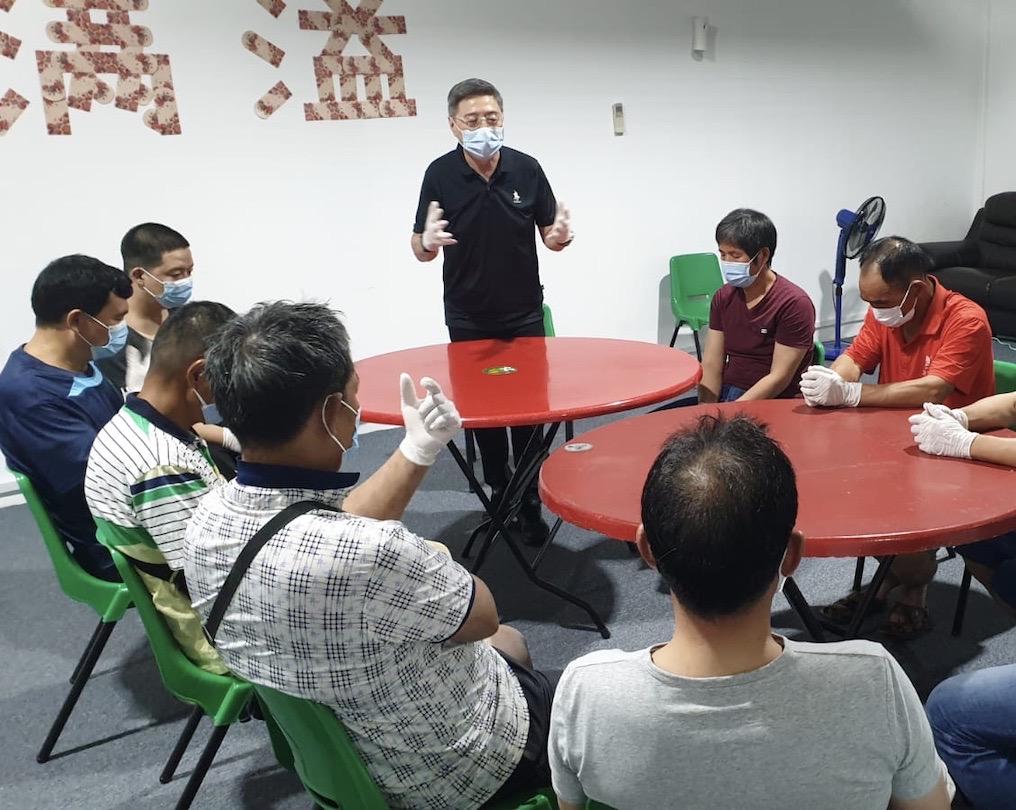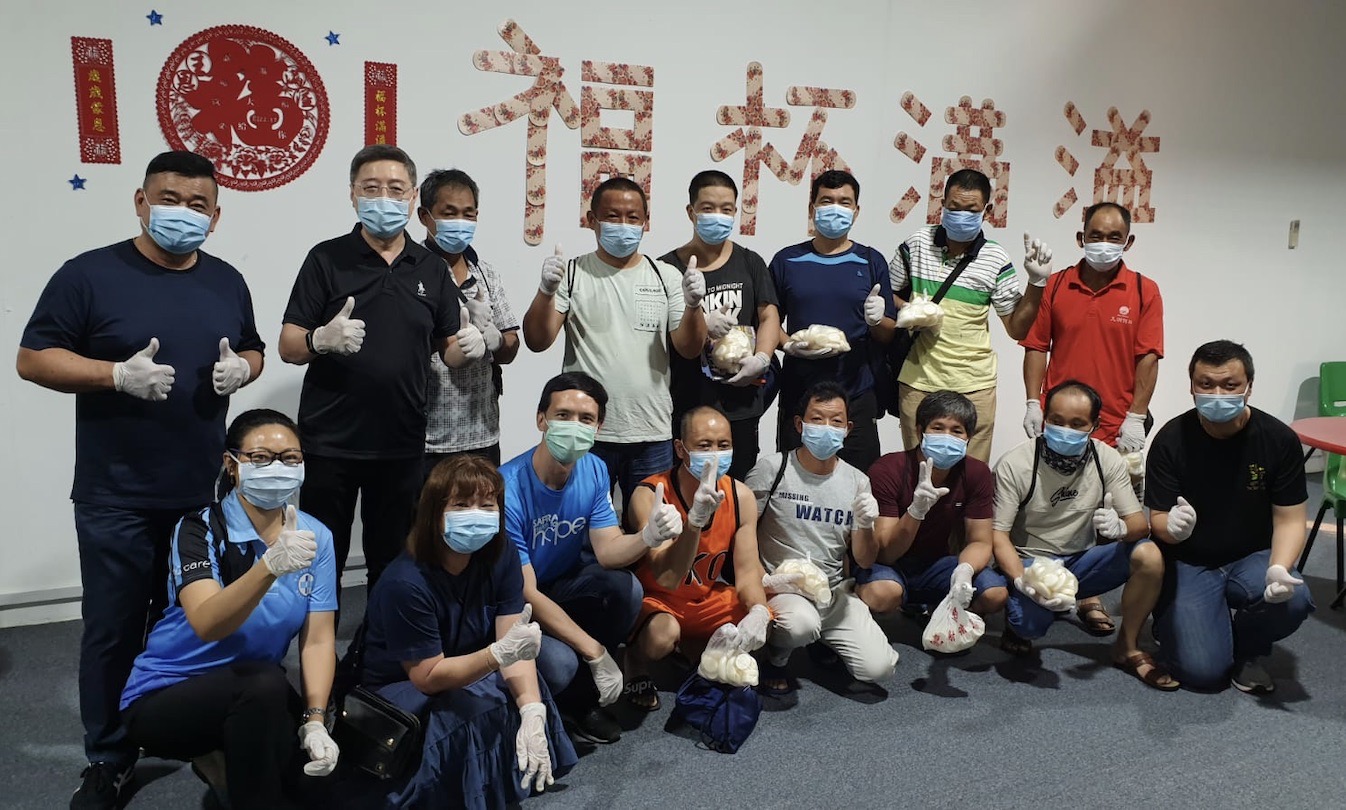“Migrant workers are a part of Singapore, we can’t forsake them”: Help centres partner churches to distribute masks and vitamins
by Geraldine Tan // February 26, 2020, 2:28 pm

Recognising the needs of the migrant worker community during this COVID-19 season, non-profit organisation SG Accident Help Centre has been working with churches to put together care packages for migrant workers since the beginning of February. Photo by Josue Isai Ramos Figueroa on Unsplash.
“I’m very afraid. I want to quit my job and go home. I don’t want to die in Singapore alone,” Bangladeshi worker Safal (not his real name) told Isabel Phua, founder of social enterprise Migrant X Me.
“They are a part of our community, we cannot leave them out.”
Safal’s family has been urging the cleaning supervisor to return home, following news of the COVID-19 situation in Singapore, as they believe Bangladesh to be a safer place, given that there are no reported infections there.
This is something Phua has been hearing a lot of in recent days.
“Some of our Bangladeshi friends became increasingly worried when the number of infections among construction workers rose to five. And one of them is now in critical condition,” said Phua, 26, who has been on a mission to educate Singaporean youths about the migrant worker community in Singapore.
The five infected are Bangladeshis who worked at Seletar Aerospace Heights and were residents at The Leo dormitory located at Kaki Bukit Road.

Injured Chinese workers have been helping to pack the care packages consisting of masks, Vitamin C, soap and sanitiser for distribution in the dormitories. Photo courtesy of SG Accident Help Centre.
According to the Bangladesh High Commission in Singapore, there are an estimated 160,000 Bangladeshis working here, making them one of the largest migrant worker populations in the country.
Some of the migrant workers who are in a group chat with Phua also expressed concern that they would be unable to get masks even if they fell ill.
“This is the time to serve others”
Recognising the needs of the migrant worker community during this COVID-19 season, non-profit organisation SG Accident Help Centre has been putting together care packages containing masks, sanitisers and vitamin C for migrant workers, and distributing them since the beginning of February.
“We are very limited in our own resources. In order to reach out to more migrant workers, we have been working with Migrant X Me, as well as churches like Faith Community Baptist Church, Bethesda Bedok-Tampines Church, Paya Lebar Methodist Church, St Paul’s Church and Church of Singapore,” said Eric Lee, 52, director of SG Accident Help Centre.

Pastor Cheng Kim Meng from FCBC asking the migrant workers about their working and living conditions, and sharing personal hygiene basics with them. Photo courtesy of SG Accident Help Centre.
However, more help is needed, prompting Migrant X Me and SG Accident Help Centre to put out a call for volunteers to help pack and distribute the care packages. In just three days, they managed to get more than 60 responses.
While the number of volunteers has been met, they are still looking for donations of surgical masks and 30-50ml travel bottles for sanitisers.
“Many of them are very tired as the number of workers has dropped – there is now a shortage of workers.”
“We only have big bottles of sanitisers and are looking to repack them into 1,000 smaller bottles so we can distribute these to the 1,000 migrant workers living in the dormitories located in Tai Seng,” said Lee.
“We are also looking to educate them on proper use of the masks when they come to collect them at the SG Care Welcome Centre,” added Phua. This was after it was noticed that many migrant workers mishandled the masks they were given when they entered SG Accident Help Centre and SG Care Welcome Centre to seek help.
Centre staff are directing migrant workers to the educational videos and posters in their native language, produced by the Singapore government.
Shortage of workers
Even though the centres have ceased their physiotherapy and traditional Chinese medicine sessions for migrant workers, it continues to help with casework and provide counselling.
“At this moment, we should be seeking opportunities to serve others.”
“Many of them are very tired as the number of workers has dropped – there is now a shortage of workers because a number have quit and returned home or are under quarantine. This means they now have to work even harder and their fatigue could risk an increase in workplace incidences,” said Lee.
While he is unable to help alleviate their workload, he hopes the ongoing counselling sessions at SG Accident Help Centre and SG Care Welcome Centre can help keep their spirits up during this time.
“We can’t meet all the needs of the migrant workers but we try to be there for them, not forsaking them at this moment, keeping our centres open so they know we are with them,” added Lee.

SG Accident Help Centre, in partnership with several churches, gave out care packages to workers living at Tuas View dormitory, which has been partially converted into an isolation facility. Photo courtesy of SG Accident Help Centre.
The estimated 300 migrant workers under quarantine at Tuas View Dormitory have not been forgotten.
Lee, who also has a centre in Tuas, said: “We are unable to reach out to them directly but we’ve sent them some magazines to read, to encourage them during this time. We have also distributed masks, vitamin C and soap to the workers living there.”
Added Phua: “Going to the dormitories may seem scary to some but we should not be afraid. At this moment we should be seeking opportunities to serve others.”
“We need to care for them because they are a part of our community, we cannot leave them out,” reminded Lee, pointing to Matthew 25:35-40:
“For I was hungry and you gave me food, I was thirsty and you gave me drink, I was a stranger and you welcomed me, I was naked and you clothed me, I was sick and you visited me, I was in prison and you came to me.’ Then the righteous will answer him, saying, ‘Lord, when did we see you hungry and feed you, or thirsty and give you drink? And when did we see you a stranger and welcome you, or naked and clothe you? And when did we see you sick or in prison and visit you?’ And the King will answer them, ‘Truly, I say to you, as you did it to one of the least of these my brothers, you did it to me.’“
Keen to help?
Migrant X Me and SG Accident Help Centre is still seeking donations of the following items:
- Surgical masks
- 30-50ml travel bottles for sanitisers
Are you able to donate these items in kind or in cash? Drop them an email at [email protected].
Come! Let’s makan briyani at Tai Seng: From migrant workers to friends
“Migrant workers are a part of our Singapore family”: HealthServe co-founder Tang Shin Yong
We are an independent, non-profit organisation that relies on the generosity of our readers, such as yourself, to continue serving the kingdom. Every dollar donated goes directly back into our editorial coverage.
Would you consider partnering with us in our kingdom work by supporting us financially, either as a one-off donation, or a recurring pledge?
Support Salt&Light



